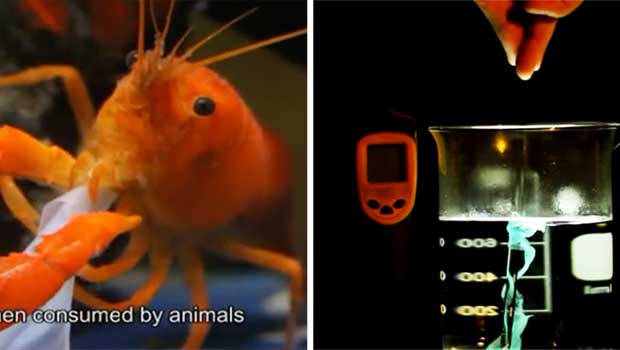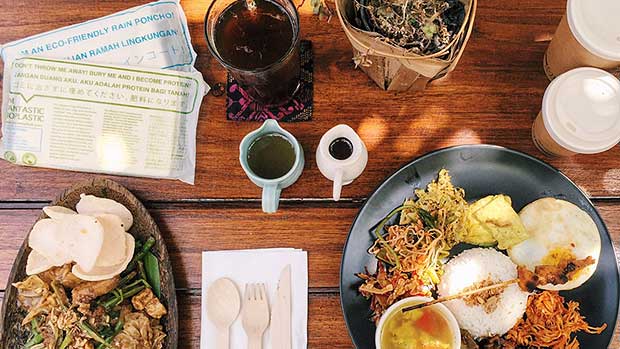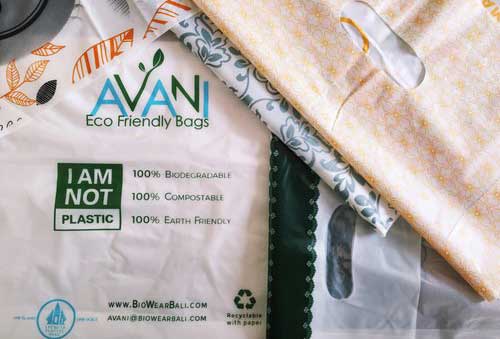Advertisement
An Edible, Biodegradable Bag Made From This Common Root Could Save the World From Plastic
| By Jason Owen
Advertisement - Continue reading below

As the world grapples with the effects of climate change and a growing pollution problem, one Indonesian company has created an edible, biodegradable “plastic” bag that could help solve a number of growing problems.
Avani, based in Bali, has created the Eco Bag, which they say is 100 percent biodegradable and safe for marine animals to eat and for humans to drink (more on that shortly).
From the company’s website:
“Avani Eco Bags have passed for Oral Toxicity Test certification; thus causing no harm when consumed by marine animals. Hundreds and thousands of sea animal deaths happened annually due to choking or swallowing of toxic plastic residue. Avani Eco Bag is the solution to this epidemic.”

How did Avani achieve such a feat?
The Eco Bags are made from cassava roots, a “woody shrub native to South America” packed with carbohydrates, and is the third largest source of food carbohydrates in tropical regions (after rice and maize).
The co-founder of Avani, Kevin Kumala told Your Daily Dish that Indonesia grows approximately 24.2 million tons of cassava root per year. Kumala said the bags are made from the “industrial grade” of the cassava root, cassava starch, which is typically considered a waste product, and thus does not have any adverse effects on cassava root growth and would have few – if any – negative ramifications in producing the bags on a larger scale.
In video demonstrations from Avani, the cassava bags are consumed by crayfish, crickets, and even chickens, and the liquid biodegradation is exhibited in a video that shows it breaking apart in a beaker of hot water. Kumala went a step further and in a video demonstration for Business Insider drank a glass of blue-colored water after the bag had dissolved in it.
Avani touts the benefits of the Eco Bag on ocean habitats, asserting the bags could help reduce the over 100,000 deaths from animals eating plastic each year.
A 2015 study in Science magazine found that eight million metric tons of plastic winds up in our oceans each year.
“Avani is a social enterprise based in Bali, Indonesia, the epicenter of the battle against plastic waste,” the company states on its website. “Assumed by most as a tropical island paradise with pristine white sand beaches, the truth is that Bali’s beaches and landscapes are now saturated with garbage and debris, and the majority of this trash is plastic.”
A biodegradable bag that can also be safely consumed by animals could return the beaches to their pristine allure.

Along with the Eco Bag, Avani manufactures eco-friendly take-out containers, straws, coffee cups, wooden cutlery, and ponchos. They partner with over 70 businesses in the region, and have been approached by a handful of U.S. companies to use the bags domestically.
As demand increases, Avani should have little trouble keeping up with their orders. Kumala told Your Daily Dish the company can manufacture approximately 1,000,000 bags in as little as seven to 10 days.
If more companies agree to carry the Avani biodegradable products, the impacts of human consumption won’t take as great a toll on wildlife habitats and help to make sure we leave a healthy, vibrant planet for the generations to come.
To learn more about Avani, visit their website here.
Advertisement - Continue reading below
Share
On Facebook
